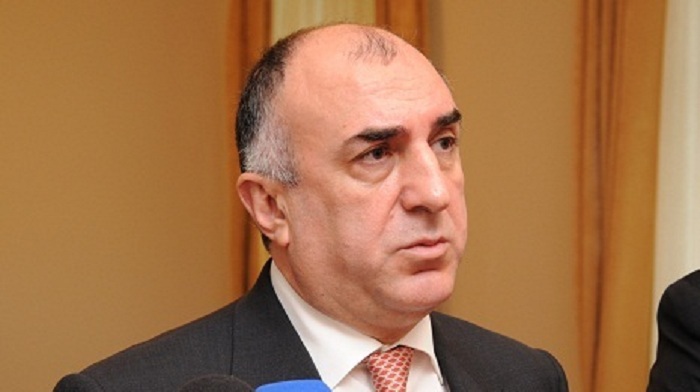Nagorno-Karabakh conflict puts Armenia into hopeless situation

He made the remarks in Tbilisi at a joint press conference with Georgia’s foreign minister, Tamar Beruchashvili.
Mammadyarov arrived on Feb. 19 in Georgia for a two-day official visit.
“The Armenian-Azerbaijani Nagorno-Karabakh conflict hinders the development of not only Azerbaijan, but also puts Armenia in a hopeless situation, as Yerevan can’t in such circumstances participate in large-scale regional projects,” said Mammadyarov.
The conflict between the two South Caucasus countries began in 1988 when Armenia made territorial claims against Azerbaijan.
As a result of the ensuing war, in 1992 Armenian armed forces occupied 20 percent of Azerbaijan, including the Nagorno-Karabakh region and seven surrounding districts. The two countries signed a ceasefire agreement in 1994. The co-chairs of the OSCE Minsk Group, Russia, France and the US are currently holding peace negotiations.
Armenia has not yet implemented four UN Security Council resolutions on the liberation of the Nagorno-Karabakh and the surrounding regions.
Mammadyarov underscored that Armenia can become a member to the project for construction of the Baku-Tbilisi-Kars railway, if that country abandons the policy of aggression.
Baku-Tbilisi-Kars railway is being constructed on the basis of the Georgian-Azerbaijani-Turkish intergovernmental agreement.
The State Oil Fund of the Republic of Azerbaijan (SOFAZ) finances the project in accordance with the Azerbaijani president’s decree `On the implementation of the Baku-Tbilisi-Kars project activities` dated February 21, 2007.
A new 105-kilometer branch of the railroad is being constructed as part of the Baku-Tbilisi-Kars project. In addition, the railway`s Akhalkalaki-Marabda-Tbilisi section is under reconstruction in Georgia that will increase its capacity to 15 million metric tons of cargo per year. A depot is under construction in Akhalkalaki for the transition of trains from the existing tracks in Georgia to the European ones. It is planned to complete the implementation of the project in 2015.
The peak capacity of the corridor will be 17 million metric tons of cargo per year. At the initial stage, this figure will be equal to one million passengers and 6.5 million metric tons of cargo.














































